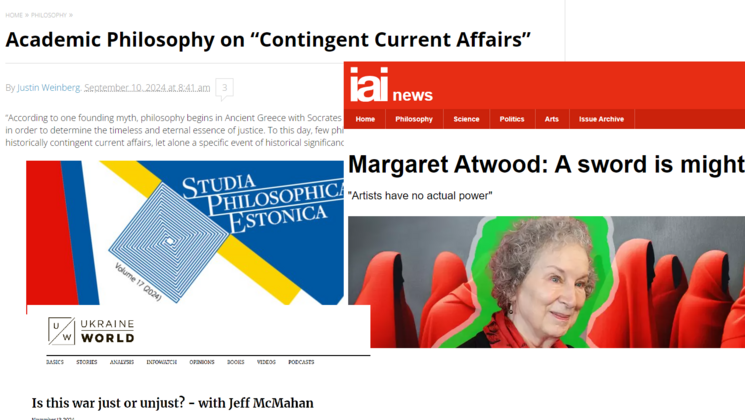-
Faculty of Arts and HumanitiesDean's Office, Faculty of Arts and HumanitiesJakobi 2, r 116-121 51005 Tartu linn, Tartu linn, Tartumaa EST0Institute of History and ArchaeologyJakobi 2 51005 Tartu linn, Tartu linn, Tartumaa EST0Institute of Estonian and General LinguisticsJakobi 2, IV korrus 51005 Tartu linn, Tartu linn, Tartumaa EST0Institute of Philosophy and SemioticsJakobi 2, III korrus, ruumid 302-337 51005 Tartu linn, Tartu linn, Tartumaa EST0Institute of Cultural ResearchÜlikooli 16 51003 Tartu linn, Tartu linn, Tartumaa EST0Institute of Foreign Languages and CulturesLossi 3 51003 Tartu linn, Tartu linn, Tartumaa EST0School of Theology and Religious StudiesÜlikooli 18 50090 Tartu linn, Tartu linn, Tartumaa EST0Viljandi Culture AcademyPosti 1 71004 Viljandi linn, Viljandimaa EST0Professors emeriti, Faculty of Arts and Humanities0Associate Professors emeriti, Faculty of Arts and Humanities0Faculty of Social SciencesDean's Office, Faculty of Social SciencesLossi 36 51003 Tartu linn, Tartu linn, Tartumaa EST0Institute of EducationJakobi 5 51005 Tartu linn, Tartu linn, Tartumaa EST0Johan Skytte Institute of Political StudiesLossi 36, ruum 301 51003 Tartu linn, Tartu linn, Tartumaa EST0School of Economics and Business AdministrationNarva mnt 18 51009 Tartu linn, Tartu linn, Tartumaa EST0Institute of PsychologyNäituse 2 50409 Tartu linn, Tartu linn, Tartumaa EST0School of LawNäituse 20 - 324 50409 Tartu linn, Tartu linn, Tartumaa EST0Institute of Social StudiesLossi 36 51003 Tartu linn, Tartu linn, Tartumaa EST0Narva CollegeRaekoja plats 2 20307 Narva linn, Ida-Virumaa EST0Pärnu CollegeRingi 35 80012 Pärnu linn, Pärnu linn, Pärnumaa EST0Professors emeriti, Faculty of Social Sciences0Associate Professors emeriti, Faculty of Social Sciences0Faculty of MedicineDean's Office, Faculty of MedicineRavila 19 50411 Tartu linn, Tartu linn, Tartumaa ESTInstitute of Biomedicine and Translational MedicineBiomeedikum, Ravila 19 50411 Tartu linn, Tartu linn, Tartumaa ESTInstitute of PharmacyNooruse 1 50411 Tartu linn, Tartu linn, Tartumaa ESTInstitute of DentistryL. Puusepa 1a 50406 Tartu linn, Tartu linn, Tartumaa ESTInstitute of Clinical MedicineL. Puusepa 8 50406 Tartu linn, Tartu linn, Tartumaa ESTInstitute of Family Medicine and Public HealthRavila 19 50411 Tartu linn, Tartu linn, Tartumaa ESTInstitute of Sport Sciences and PhysiotherapyUjula 4 51008 Tartu linn, Tartu linn, Tartumaa ESTProfessors emeriti, Faculty of Medicine0Associate Professors emeriti, Faculty of Medicine0Faculty of Science and TechnologyDean's Office, Faculty of Science and TechnologyVanemuise 46 - 208 51003 Tartu linn, Tartu linn, Tartumaa ESTInstitute of Computer ScienceNarva mnt 18 51009 Tartu linn, Tartu linn, Tartumaa ESTInstitute of GenomicsRiia 23b/2 51010 Tartu linn, Tartu linn, Tartumaa ESTEstonian Marine Institute0Institute of PhysicsInstitute of ChemistryRavila 14a 50411 Tartu linn, Tartu linn, Tartumaa EST0Institute of Mathematics and StatisticsNarva mnt 18 51009 Tartu linn, Tartu linn, Tartumaa EST0Institute of Molecular and Cell BiologyRiia 23, 23b - 134 51010 Tartu linn, Tartu linn, Tartumaa ESTTartu ObservatoryObservatooriumi 1 61602 Tõravere alevik, Nõo vald, Tartumaa EST0Institute of TechnologyNooruse 1 50411 Tartu linn, Tartu linn, Tartumaa ESTInstitute of Ecology and Earth SciencesJ. Liivi tn 2 50409 Tartu linn, Tartu linn, Tartumaa ESTProfessors emeriti, Faculty of Science and Technology0Associate Professors emeriti, Faculty of Science and Technology0Institute of BioengineeringArea of Academic SecretaryHuman Resources OfficeUppsala 6, Lossi 36 51003 Tartu linn, Tartu linn, Tartumaa EST0Area of Head of FinanceFinance Office0Area of Director of AdministrationInformation Technology Office0Administrative OfficeÜlikooli 17 (III korrus) 51005 Tartu linn, Tartu linn, Tartumaa EST0Estates Office0Marketing and Communication OfficeÜlikooli 18, ruumid 102, 104, 209, 210 50090 Tartu linn, Tartu linn, Tartumaa EST0Area of Vice Rector for DevelopmentCentre for Entrepreneurship and InnovationNarva mnt 18 51009 Tartu linn, Tartu linn, Tartumaa EST0University of Tartu Natural History Museum and Botanical GardenVanemuise 46 51003 Tartu linn, Tartu linn, Tartumaa EST0International Cooperation and Protocol Office0University of Tartu MuseumLossi 25 51003 Tartu linn, Tartu linn, Tartumaa EST0Area of RectorRector's Strategy OfficeInternal Audit OfficeArea of Vice Rector for Academic AffairsOffice of Academic AffairsUniversity of Tartu Youth AcademyUppsala 10 51003 Tartu linn, Tartu linn, Tartumaa EST0Student Union OfficeÜlikooli 18b 51005 Tartu linn, Tartu linn, Tartumaa EST0Centre for Learning and TeachingArea of Vice Rector for ResearchUniversity of Tartu LibraryW. Struve 1 50091 Tartu linn, Tartu linn, Tartumaa EST0Grant Office
Guest lecture by Nigel DeSouza (University of Ottawa) "Herder and Kant on the philosophy of life and the foundations of morality"
On Tuesday, 15 October, from 4:15–5:45 pm, Nigel DeSouza, Associate Professor at the University of Ottawa, will give a guest lecture at the University of Tartu. The topic of the lecture is "Herder and Kant on the philosophy of life and the foundations of morality: two models of German enlightenment, with a modern perspective". The lecture will take place at Jakobi 2-114.
Everyone interested is welcome!
Herder and Kant on the philosophy of life and the foundations of morality: two models from the Aufklärung, with a contemporary perspective
How should we conceptualize life? What is the relationship between matter and life? Is there a fundamental connection between life and morality? This talk will aim both to unpack the divergent answers to these questions that can be found in the work of Johann Gottfried Herder (1744-1803) and Immanuel Kant (1724-1804) and, in so doing, to outline two different models from the German Enlightenment for conceptualizing the human being and human society. Central to these conceptions are Herder and Kant’s respective theories of the soul-body relationship, where questions about the nature of the soul as principle of life or thinking spirit, about dualism, anti-dualism, and interaction, are paramount. In a final section, we will turn to a contemporary perspective on these questions: the cognitive scientific theory of enactivism, as articulated by Evan Thompson, and explore the interesting ways in which this theory was anticipated by both Herder and Kant.
Bio
Nigel DeSouza is Associate Professor in the Department of Philosophy, University of Ottawa. He works on the philosophy of Johann Gottfried Herder, early modern philosophy, and on contemporary ethics. He has published articles on Herder’s metaphysics, epistemology, philosophy of language, philosophy of history, and moral philosophy in the context of his dialogue with predecessors and contemporaries, such as Leibniz, Wolff, Baumgarten, Shaftesbury, Rousseau, Mendelssohn, and Kant. His articles have appeared in several edited volumes, The British Journal for the History of Philosophy, Intellectual History Review, Herder Yearbook, the Herder Handbuch (2016), and in a volume he co-edited, Herder: philosophy and anthropology (2017, OUP). He is the general editor of the Cambridge Herder Translations (forthcoming 2025), comprising five volumes of Herder’s philosophical works in English translation, for which he is also translator of two volumes. In contemporary ethics, he has published articles on Charles Taylor and on the foundations of ethical agency (in Ethical Theory and Moral Practice). He is currently working on a monograph on Herder’s philosophy of life.
The lecture is sponsored by the Estonian Research Council’s research grant PUT PRG942 “Self-Determination of Peoples in Historical Perspective”.
Guest lecture by Nigel DeSouza (University of Ottawa) "Herder and Kant on the philosophy of life and the foundations of morality"

Optional courses in the Faculty of Arts and Humanities spring 2025

See what roles the university mascot Tiksu took on during the Christmas season

